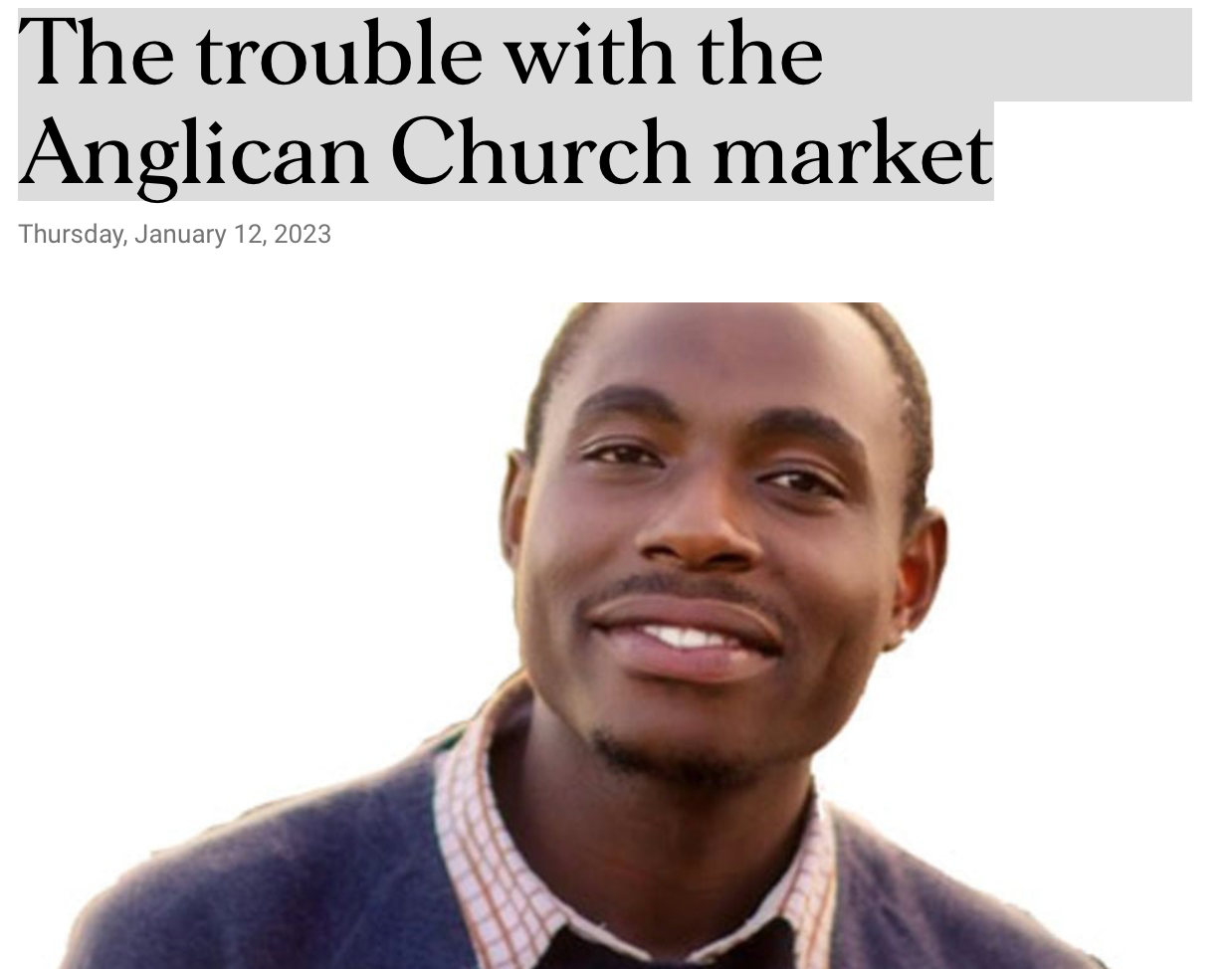
Source: Monitor
By: Jacob K. Mwine~Kyarimpa
What you need to know:
- A widow who walks to church on a hungry stomach may return home with a headache. There is often nothing for the wretched of the earth in this weekly church market. In whose interests is the Church market? What would Jesus do, if he were to attend service in our rural Churches?
Every after offertory and thanksgiving in the rural Anglican Church, shrewd auctioneers are invited to the pulpit to turn material offerings into money.
In a very symbolic fashion, the Bible stand is often pushed aside and replaced with the goods for sale. The church is turned into a market.
In fact, not only do Christians themselves call this session of the church service a market but also members of the local community attend church services just in case they can buy some items cheaply.
The Anglican Church market is a theatre of the absurd. The auctioneers lift the items in the air and the haggling begins. It rotates around comic vulgarities, shaming the poorest of the poor, manufacturing financial feuds within the congregation, and often climaxes with the playoff of pride.
The successful buyer sometimes gives away an item they intensely contested for and even expensively bought, just to showcase their affluence.
We are forced to clap for the buyers because as the auctioneers often remind us, ‘if you have no money, accept to clap for those who have the money.’ The Anglican Church market is a mockery of the Christian teachings of Love.
Yet, the market is claimed to be fundamental in ‘building the church’. The more the market booms, the more the local church is able to pay the annual mandatory remittances to the diocesan treasury.
The church is built more in giving cents to the Diocese than in receiving saints to the Kingdom of God. The local church is thus more interested in meeting the obligation of remittances than it is in attending to the needs of the Christians.
Prayer sessions, intercessions, and the choir which connect the Christians more to their God and soothe their souls through praise and worship are rushed through in a very ceremonial fashion.
It is the paradox of all paradoxes that compared with the other sessions of the church service, the Anglican church market usually has unlimited time.
Money has become the defining factor of building the Anglican Church.
The Anglican church argues that the money is for remuneration of the clergy and other servants of the church, running other mission activities, and funding infrastructural developments.
Ironically, the infrastructural development of the rural church itself often depends on the sympathies of the sons and daughters of the village who have returned back home for Christian festivities like Christmas.
The worn-out garbs of the rural clergy are testimony enough that the clergy themselves receive peanuts.
Recently, a revival Christian collective, Kigezi Ankole Anglican Youth Missioners has taken matters in its own hands and donated clerical shirts to clergy in rural areas in Uganda.
However, a child who comes to church in tatters totters back home in the same.
A widow who walks to church on a hungry stomach may return home with a headache. There is often nothing for the wretched of the earth in this weekly church market.
In whose interests is the Anglican Church market? What would Jesus do, if he were to attend an Anglican service in our rural Churches?
Mr Jacob K. Mwine~Kyarimpa, mwinekyarimpa@gmail.com
Twitter: @Mwine_Kyarimpa

